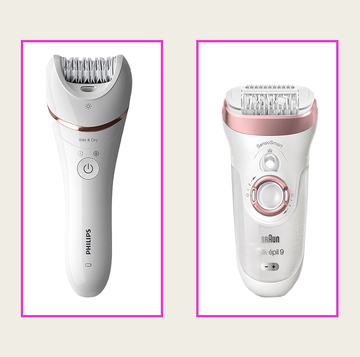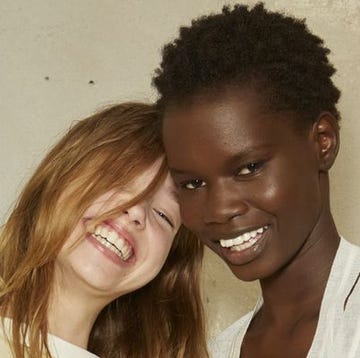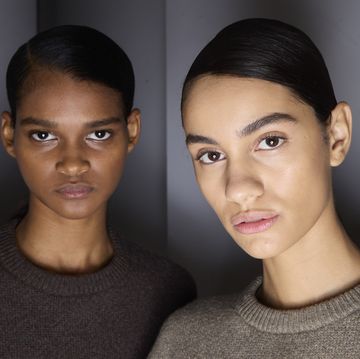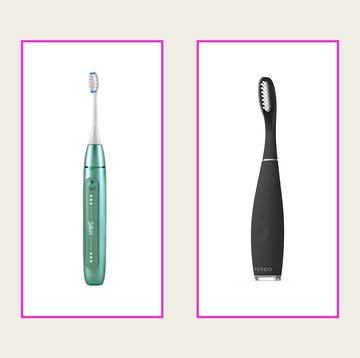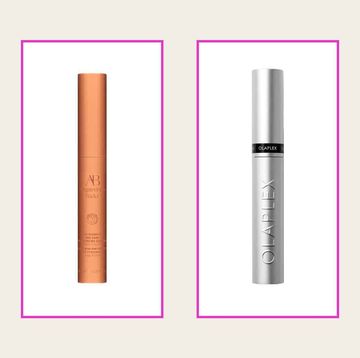Music is running through me.
Deep, resonant chords rise and fall, interspersed with bright, high notes. As the final, uplifting notes ebb away, I lie back – floating in a safe and beautiful space. I am on my sofa, having just experienced psychedelic sound therapy. As neuroscience advances, it is slowly proving what a lot of us know by instinct: sound holds huge power over the brain.
Studies have already proved music’s ability to heal mental distress and even assist physical wellness (one investigation in Philadelphia in 2016 found music benefited the physical and psychological wellbeing of cancer patients).* Artificially intelligent sound is now also being crafted by Silicon Valley wunderkinds for focus and meditation. In short, innovators leading an aural wellness revolution offer a thrilling range of soundscapes promising to transform anything from mood to memory and sleep. Your earbuds are the next biohackable hotspot. All you need do is listen.
Neuroscientist Mendel Kaelen became fascinated by sound at Imperial College London while researching the therapeutic potential of psychedelic drugs such as psilocybin (found in magic mushrooms) to help issues from depression to alcoholism. Music was used during the trials and, as a result, Kaelen investigated sound-based therapeutic psychedelic journeys. In 2019, Wavepaths ran an immersive pop-up in London, in which you listened to sound that iterated according to inputs like breathing (to show how relaxed you were). It sold out, and enabled Kaelen to prove his thesis.
When answering research questionnaires designed for trials of psychedelic therapy, more than half of participants reported having a peak experience, leading to a change in their overall wellbeing. ‘These experiences are defined as a feeling of union with oneself and life and the cosmos, immense wonder at the beauty of the world; they are moments which take you beyond yourself,’ Kaelen tells me.
Wavepaths was due to open a huge east London space last year to meet this demand. Instead, the company pivoted and in early 2021 launched a new virtual experience. I log on and choose my emotional sound journey: ‘Dissonant and Tense’ to ‘Blissful Release’. Our six-year-old has spent the morning distributing Lego across our flat; I’ve spent the day racing to meet deadlines, and removing sharp bricks from my feet, and am feeling wound-up – but something inside me releases as the music plays. By the time it finishes, my face is wet with tears that are hard to explain: a sense of laying my inner self open, of gratitude, of relief.
Wavepaths has a library of orchestral and electronic tracks laid down by artists including Jon Hopkins, but what you hear is ‘generative’ – it changes according to the moods you input, and there are plans to incorporate biometric data, such as pulse rate. Kaelen says: ‘Our aim is to develop a new approach to wellbeing. Immersive sound journeys enable us to explore the depths of our minds. The music is the therapist, it helps us resolve inner conflict and move towards calm.’
Sound app Endel also positions itself as promoting change, this time in wellbeing, focus and sleep. Again, using artificially intelligent, generative music, this app draws data from your phone including circadian rhythm, weather and heart rate (via Apple Health or Google Fit) to create personal playlists. With funding from Amazon’s Alexa Fund and also Kevin Rose (a partner at True Ventures – the firm that backed FitBit and Peloton), Endel’s aspirations are big. The app has more than two million downloads. Last autumn it launched a sleep sounds collaboration with Grimes. She was inspired to create AI Lullaby – think slumber-inducing ambient sounds, with snips of Grimes’ voice – as she had a new baby with her partner, tech billionaire Elon Musk, and they were very keen to find a ‘better baby sleeping situation’.
As well as Grimes’ lullaby, possible settings options include Relax and On The Go. Stuck at my desk in a procrastination loop, I choose Focus. It’s a different experience from the uplifting house music I usually play while I work. Soon, I stop noticing the gentle thrumming beats overlaid with higher pitched notes (not unlike spa muzak, but a bit more up-tempo) and keep typing away. Innocuous it may be, but it seems to work.
‘A third-party company has run tests to measure brainwave activity, comparing Endel to a Spotify focus playlist,’ CEO Oleg Stavitsky tells me. ‘Endel clearly delivered a more consistent focus.’ Partly, this improved focus is because of ‘sound masking’ – the variance of Endel’s beats are designed to be just repetitive enough not to hold the brain’s attention but varied enough to blot out distractions. It’s also because it boosts your energy at key times: Endel recognises when your heart rate becomes sluggish, or you’ve been sitting still at your desk too long, and raises the intensity of the music to keep you going. Over lockdown, the number of people regularly using Endel tripled. ‘This moment is really exciting,’ Stavitsky continues. ‘We see Endel as an addition to the human body, a tech-aided extra power, almost like a seventh sense.’
‘There’s been a huge boom in audio culture, and the idea of getting into people’s ears has untapped potential,’ says Alex Hawkins, senior writer at trend forecasting agency The Future Laboratory. ‘Innovators like Endel and Wavepaths highlight the extent to which sound is the next wellness frontier.’ The past year has also seen burgeoning interest in binaural beats, a neuro-acoustic approach in which differing sound frequencies are played into either ear creating a third ‘beat’, which is alleged to affect the frequency of your brainwaves. Binaural beats are used, as at Gwyneth Paltrow’s 2018 Goop wellness summit, to bring calm.
‘We use binaural beats to promote those [delta and theta] brain waves that are associated with meditative states,’ says Jon Denoris, the exercise scientist behind London gym Club 51 Intelligent Fitness. ‘They can also help with pain and memory.’ At skin clinic Eudelo,
Dr Stefanie Williams, a medical doctor and a dermatologist, plays a soundtrack including binaural beats during the Cell HIIT skin treatment. She tells me: ‘These technologies support you into a highly beneficial, relaxed state that reduces stress hormones and encourages cellular regeneration.’
It’s not only what you listen to that is evolving. Hearables – a bit like wearables – can already isolate the sounds you want to hear and cancel the rest, enabling you to listen to the band – or the person standing next to you. Last October, Bose launched sleep-specific buds that play soothing sounds engineered to mask the noises around you all night. Already, Apple’s AirPods Pro offer augmented aural reality (a digital overlay on reality): you can use them for (slightly patchy) real-time translation, or connect them with Siri. Where visual augmented reality, such as Google Glass has yet to catch on – partly due to its clunky look and feel – aural augmented reality suffers no such image problem. ‘There’s an increasing sense of visual overload. Screen-time is at an all-time high. Functional listening is appealing,’ continues Hawkins. And the possibilities seem limitless.
Perhaps the sheer scope should, in fact, give us pause. In his book Hush, scholar and musician Mack Hagood raises concerns around the idea of living in blocked-off soundscapes, asking if we want to outsource our mood to happy playlists, and let auditory algorithms keep us in our own echo chambers, ‘sculpting our emotional realities’.
Right now, we’ll probably take whatever works. But it is interesting to ponder a brave new world where your ‘hearable’ works as anti-anxiety tool, love-making aide, memory booster and fitness coach, and to consider whether, alongside all the benefits, we will each vanish into our own sound silo.
But as with any technology, intelligent audio is all about how you use it. Personally, I couldn’t recommend Wavepaths highly enough for periods when you are overwhelmed, sad or lonely – the experience is transcendent. And, in today’s world, why would anyone choose to turndown the volume on such easy escapism?
* 'Music interventions for improving psychological and physical outcomes in cancer patients' (August 2016), Cochrane Database Syst Rev.)
Like this article? Sign up to our newsletter to get more articles like this delivered straight to your inbox.
In need of more inspiration, thoughtful journalism and at-home beauty tips? Subscribe to ELLE's print magazine today! SUBSCRIBE HERE






